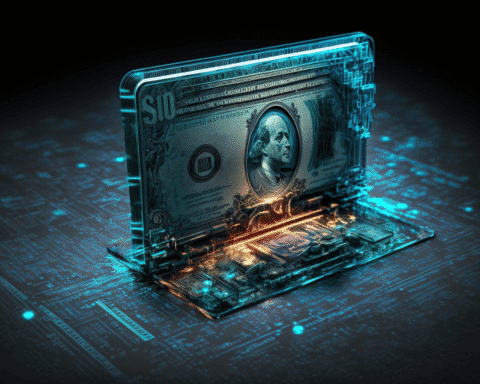Tech giant Microsoft has made it official: it’s purchasing data center infrastructure start-up Fungible for an undisclosed amount, with rumors putting the price tag around $190 million. While most investors are focused on Microsoft’s pending takeover of video game developer Activision Blizzard for $69 billion, and its reported talks of making an additional $10 billion investment in OpenAI, this acquisition has big implications for the chip industry, and semiconductor investors should be wary.
Disruption on the Horizon?
Big tech companies like Microsoft, Apple, Alphabet, and Amazon are starting to encroach on semiconductor designers’ turf, and this could lead to increased competition and disruptions in the market. The same week as Microsoft’s acquisition of Fungible, news reports surfaced that Apple is designing new silicon to try to cut Broadcom out of its supplier mix. This is not an isolated event, but rather a trend among big tech companies to move towards vertical integration and control their own supply chains. These companies are not necessarily looking to replace traditional semiconductor companies but rather to complement them, by developing specialized chips for specific use cases.
Fungible’s Role in Data Center Infrastructure
In isolation, Microsoft’s acquisition of Fungible may not seem significant, but the company’s DPUs (data processing units) could play a pivotal role in the data center industry. DPUs are critical components in moving data around a computing system, and Fungible’s DPUs boast top-notch computing power balanced with energy efficiency – an equally important factor in today’s data centers. Microsoft’s acquisition of Fungible could help the company to improve its data center infrastructure and increase its competitiveness in the cloud computing market.
Expanding Azure and Building Data Center Infrastructure
This acquisition also comes as Microsoft is set to complete its $69 billion acquisition of video game developer Activision Blizzard and its reported talks of making an additional $10 billion investment in OpenAI. These acquisitions are part of Microsoft’s larger strategy to expand its Azure cloud computing platform and build its own data center infrastructure. With the acquisition of Fungible, Microsoft can now integrate Fungible’s DPUs into its data center infrastructure, which would allow the company to improve the performance and energy efficiency of its cloud services. The company’s Azure platform is already a major player in the cloud computing market, and this acquisition could help Microsoft to further increase its market share.
Big Tech’s Impact on Semiconductor Companies
As big tech companies continue to encroach on semiconductor designers’ turf, it could lead to increased competition and potential disruptions in the market for semiconductor companies and investors. However, traditional semiconductor companies that can adapt and offer specialized chips for big tech companies’ specific use cases may still find opportunities for growth. Semiconductor investors should be aware of the trend of big tech companies moving towards vertical integration and controlling their own supply chains, as it could lead to increased competition in the market.
Sustainability Goals
It’s worth noting that Fungible’s DPUs are designed to be highly energy-efficient, which could also align with Microsoft’s sustainability goals and its push to reduce its carbon footprint. The company has set a goal to be carbon negative by 2030, and this acquisition could help the company to achieve this goal by reducing the energy consumption of its data centers.
Microsoft’s acquisition of Fungible represents a strategic move that could have long-term benefits for the company, particularly in the data center and cloud computing markets. It also aligns with the trend of big tech companies moving towards vertical integration and controlling their own supply chains, which could have significant implications for the semiconductor industry. The final purchase price will likely be confirmed in the financial filings in the upcoming months.




